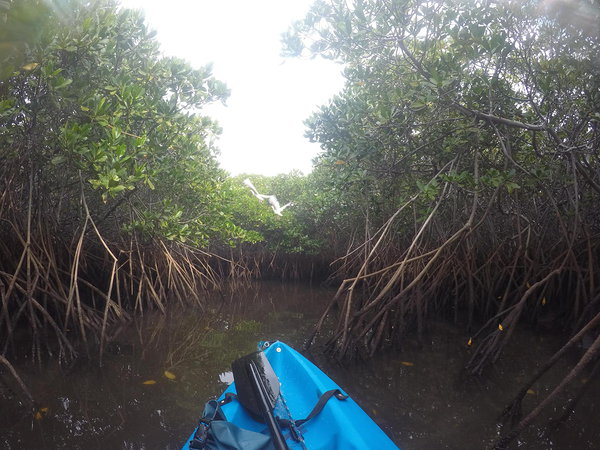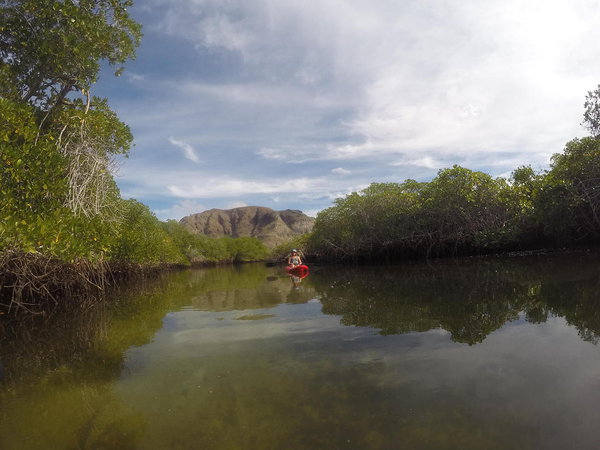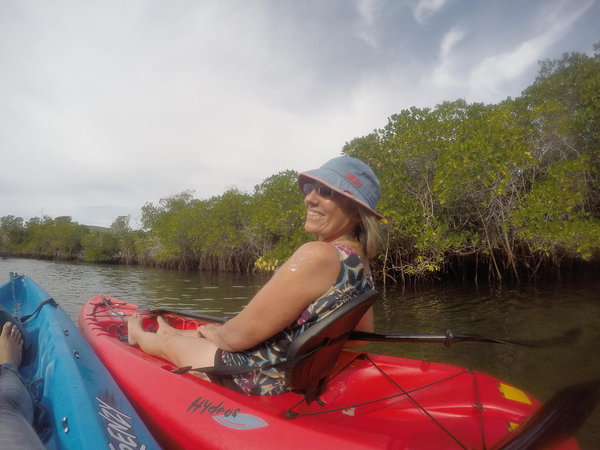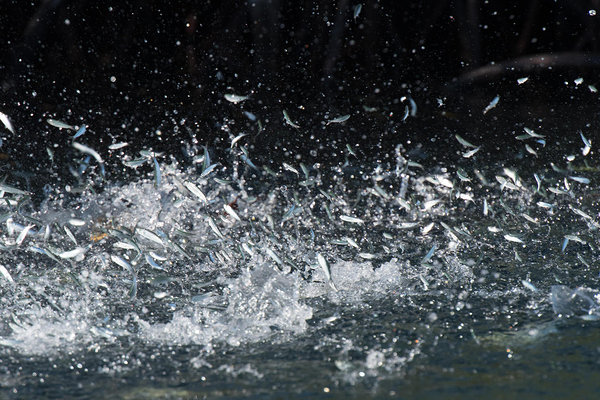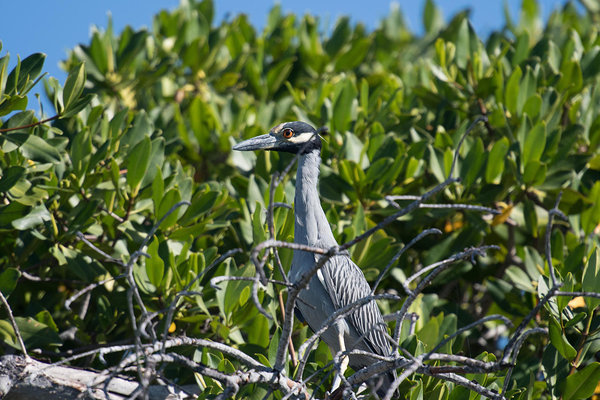Mangrove Madness
Mangrove ecosystems are the forests of the intertidal zone. They are in higher density in tropical waters as opposed to temperate ones, we classify this area as temperate water as it varies greatly throughout the year from 18-30 degrees Celcius! Although there is greater diversity in the Indo-Pacific region than in other areas, the same as coral ecosystems, we are fortunate enough to be able to explore these unique systems around La Paz and the islands in the Sea of Cortez.
Mangrove ecosystems are found on shores with low wave energy; high energy waves would disrupt the survival of forests as it would effect their dispersal and their ability to establish on the shore. Mangroves are plants and therefore they need a muddy/ sandy area in which to establish themselves. One of the easiest places tp see them here in on the mogote and at Balandra Beach. There are different types of mangrove forests and they are variable in size and species; there are 3 types of forest: tall, riverine forests; seaward fringing forests; and scrub forests. Whilst they produce different vistas the plants found within them have a number of features that have allowed them to adapt to the saltwater environment, this is very important as salt is toxic for plants. Some of the adaptations of mangroves are:
1) It requires a lot of metabolic work at the roots for the mangroves to be able to exclude salt and take up freshwater.
2) They also limit the amount of water lost during photosynthesis by limiting the number of pores (stomata) that they have.
3) The leaves of mangrove trees also have salt glands from which they can excrete salt from their leaves, which means that they are often salty to the touch.
4) The root systems are unique as they are regularly inundated with salt water and saturated soils reduce oxygen supplies to the roots, therefore the plants need to be able to get more O2 from the air down in to the roots so that they can continue their metabolic activities. In order to do this the roots are spongy and filled with tissue cells called aerenchyma that have lots of air spaces to allow for the transport of O2.
5) The roots can come in a number of different forms as either buttresses, pneumatophores, knees, stilts or prop roots. This allows them to be partially above the water line for at least part of the time and therefore air can be brought to the rest of the root.
6) The roots also act as a habitat for other organisms and increases the friction with sea water to slow it down. This slowing of the tidal waters results in the trapping of sediments and other particles.
7) The reproduction and dispersal of mangroves is also unique. Many of the tree species have propogules rather than true seeds. A propogule is a seedling that has already germinated whilst on the parent plant and then it will fall into the water. When that plant is floating in the water then it is ready to go, eventually it will lose its buoyancy but by then it will have been dispersed by the tide.
There are many important animals in the mangrove ecosystem. Crabs are one of them. The crabs consume leaf litter on the forest floor; they produce vast quantities of larvae that provide food for other creatures; the crab burrows which aids friction and this slows water movement down. If you come and explore the sands around them then watch out for hundreds of little fiddler crab burrows!
Mangrove ecosystems are valuable for a number of different reasons. They are culturally significant, some communities will use the wood for traditional uses and a subsistence lifestyle; they provide coastal protection by reducing wave energy through friction with the roots, stems and foliage – this can help any structures that are built behind. They help support fisheries production because they act as a nursery for many species by providing protection from predators, they also act as a rich resource for grazers and predators; they allow for carbon sequestration thus helping to bury CO2 in from the atmosphere, the soils help to store CO2 because there is very low amounts of O2 in the soils which helps to slow decomposition.
The future of mangrove ecosystems is uncertain as they are sensitive to changes related to climate, including: sea level rise, elevated CO2 in the atmosphere, elevated temperatures, changes in rainfall, increased frequency of storm systems and human changes. With sea level rise we could see mangroves moving inland or they may hold their position if there is also a build up in soil. Mangroves may inundate saltmarshes which are often found behind them. We may also find them moving to higher latitudes. When you come and visit then be sure to request some mangrove exploration and take a little time to look into this secret half world. You will be rewarded with bird, fish and plant life galore.
